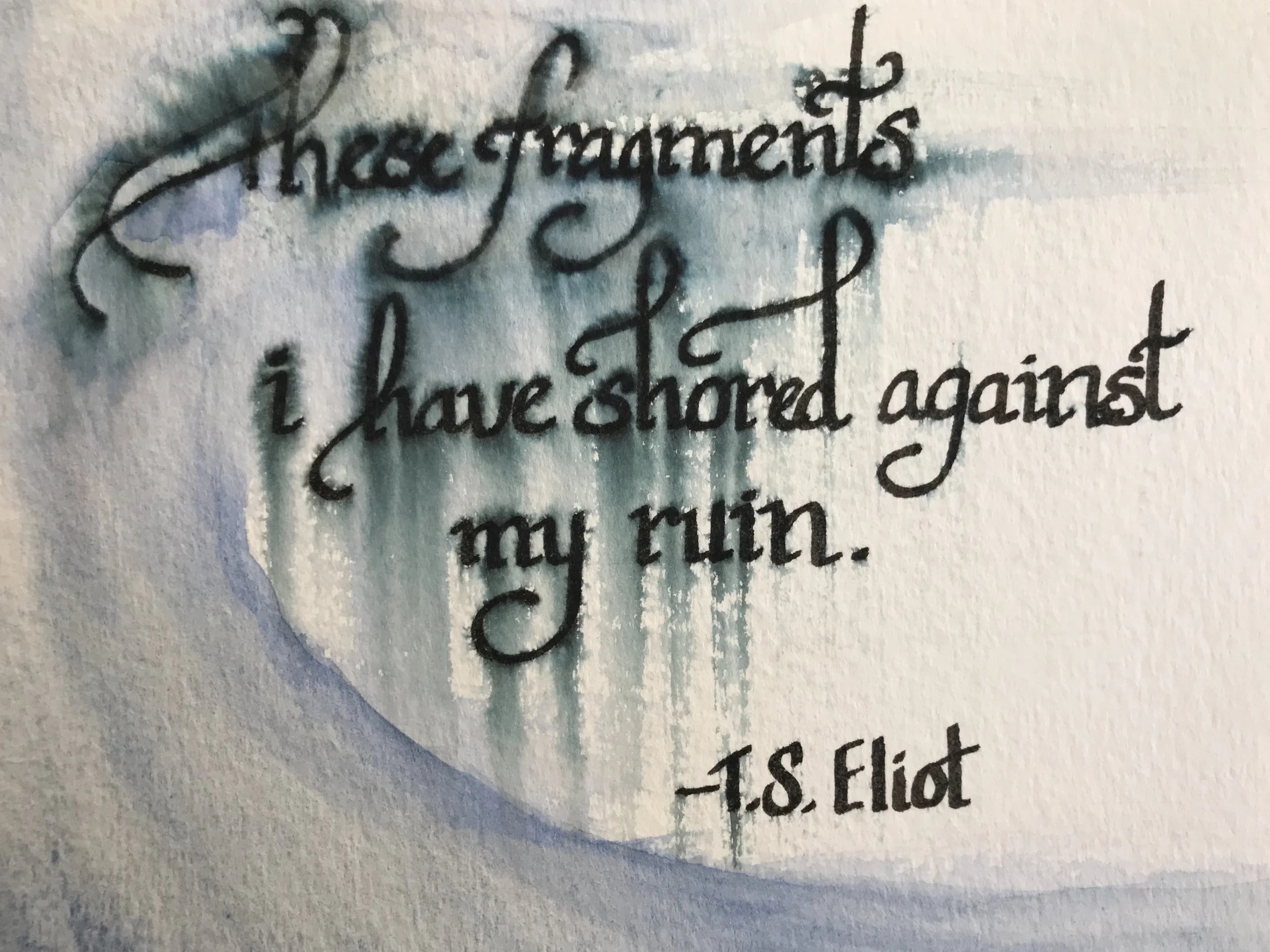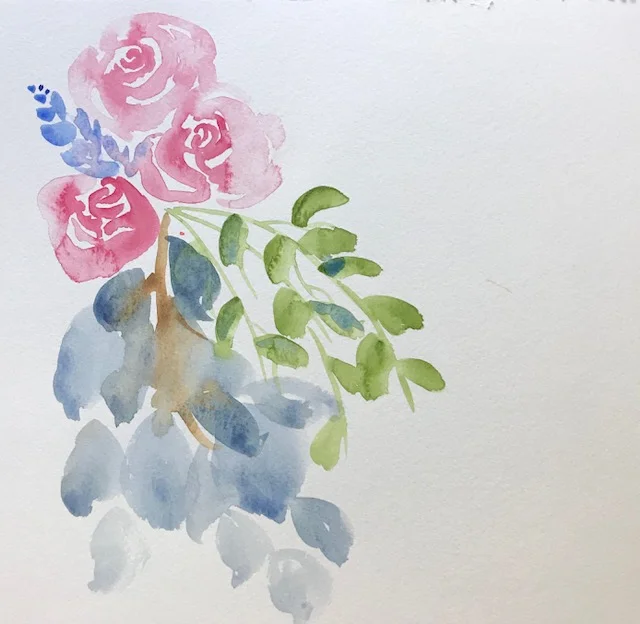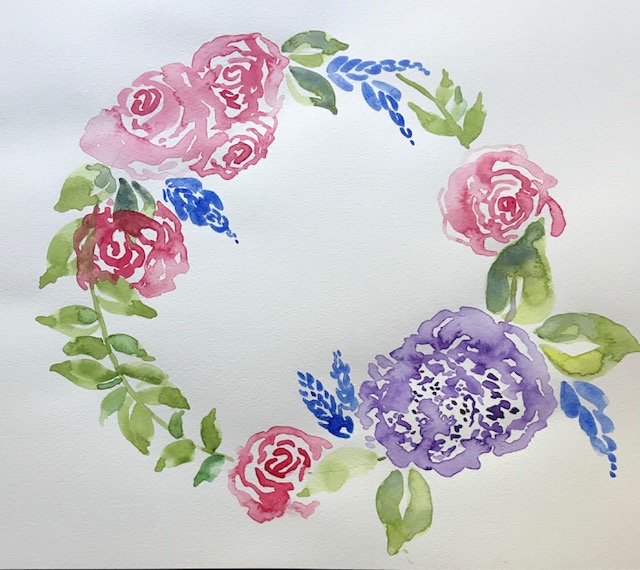The thing is, I don’t know why they’re spying on me. I don't know what I've done wrong. All I know is that I AM NOT HERE FOR THIS. This is extra basic and not on fleek right now.
What do you do when the CIA is spying on you? Well, you throw an old sock over the built-in camera on your computer, shut off location services on your phone and keep the bedroom blinds tightly closed (in case of spying drones, duh). Take that, ye servants of Satan.
From what I am later told, this episode is brought on by too much Zoloft in my system. Apparently, the Zoloft triggered my underlying illness: bipolar. At the time, though, I don't know that I'm bipolar, only that I've been undergoing various treatments for four years for a variety of increasingly severe symptoms: mostly anxiety and depression.
By midday, I am gnawing on my nails and scribbling in my journal. I’m trying to make a list of things I know to be true. It goes something like this:
- I know it is Friday.
- I know The State is spying on me.
- I know I haven’t done anything wrong. (Have I?)
- I know I’m a mom who works part-time as a server in a Greek restaurant—OH WAIT! OMG, that’s it. The State suspects I haven’t properly reported my cash tips.
- Dear IRS, mea maxima culpa. I get it. I know. I’m a horrible person. I’m sorry. I have five kids. They need things like food (not that I cook) but they need things. Like Netflix. And tacos.
- I know I’ve been having nightmares—especially that recurring one where I’m arrested and placed in solitary confinement for some crime I don’t remember committing. And nobody will tell me.
- I know my family thinks I’m going crazy. Well, THEY are the crazy ones. THEY are the unwell ones. Not me. Nope. And anyway, aren’t we all kind of mentally ill? Aren’t we all a bit touched in the head?
- I know that I grew up in a cult. Such a beautiful childhood. So healthy. So happy. Har-har.
- I know that I might need help. But I don’t know if I can get it because stupid health insurance companies are stupid about behavioral health. They keep it all hidden and hard to access. They like to give you things you don’t need: like high deductibles. Insurance companies are like Aunt LaBelle who used to hide her cigarettes in the cookie jar and when you went to her house she was like: “Me? Smoke? Never. Here, have an antihistimine”—because you were wheezing asthmatically from all the cigarette smoke that permeated every corner of her house. The point is, insurance companies keep high deductibles in cookie jars.
- I know that eight is my favorite number. Eight years old was my favorite age. It was the last time I remember being happy. That was the year I climbed the tallest pine tree in my yard and was able to see the Matterhorn mountain ride several miles away at Disneyland. And that made me impossibly happy. I had only been to Disneyland once and it was addicting. I was like Edmund in The Lion, The Witch & The Wardrobe tasting Turkish Delight for the first time. Yep, I would totally hand over my family to the White Witch for just one more taste of Mickey Mouse. I could eat that Mouse all day. Ew. But alas, I wasn’t in Disneyland, I was in a cult. Thanks for that tiny glimpse of happiness, age eight. Thanks for showing me what was possible and then yanking it away. I won’t see happiness again for another gajillion years. Cue sobs.
Somehow I have enough presence of mind to ask my neighbor to drive me to the hospital...
The young, fresh-faced volunteer at the ER intake desk looks up at me and says: “Just sign here.”
“I can’t,” I say.
He looks baffled. “You can’t sign?”
I lean forward and whisper, “I’m not ok, ok? I’m not ok, ok? I’m not ok—”
He sees my shaking hands and a light seems to go off in his head—
Suddenly I am being hustled to a chair, papers are given to my neighbor and I’m told just to wait for a moment. I don’t know what is happening. I just sit when they tell me to sit. I just stand when they tell me to stand. Why is that young lady staring at me? Why are the lights so bright? Why are the sounds so loud?
“Can you hold me down in my seat?” I say to my neighbor. “I feel like I might float away if I’m not pinned down.”
She presses a reassuring arm on my shoulder.
Someone is calling my name.
OH, NO. THEY FOUND ME.
I look up to see someone all dressed up in a nurse’s uniform holding a clipboard. NICE COSTUME, FELLAS. I know who you are! You can’t trick me!
“Elizabeth, they just want to check you in,” says my neighbor.
“I just want to die,” I say.
Her eyes grow wide.
She helps me up and I hobble over to the intake desk again. Apparently, the gig is up. I’m caught. Oh, well. Solitary confinement here I come. Beam me up, Scotty.
I don’t remember much of what happens next except that I am asked a lot of questions, taken to a room with a bed and told to undress, told to swallow a pill, poked with needles and, several hours later, sent home with a prescription for Zyprexa and strict orders to call my psychiatrist the following Monday.
When I ask the psychiatric nurse to let me stay, she says: “I’d rather send you home because I think being around other really mentally ill people will make you worse.”
Apparently, I’m not going to prison, after all. Apparently, I have to keep on living. UGH.
Ever since my best friend died by suicide, I can’t seem to get a grip on this new, horrible reality without her.
Katherine is the reason why I used to laugh and now she’s the reason why I cry.
I really thought I had a handle on this stupid grief thing. Instead, things got worse (witness: the spying drones, witness the CIA tracking my iPhone).
I thought I was getting better.
I thought I was moving on.
You know, MOVING ON. That’s the thing people say to grieving people. They say: “You’ll always cherish the special memories but now it’s time to move on.”
I wish people would stop saying that.
Because the thing is, after losing Katherine, I didn’t get better. I got worse. I moved deeper into grief, deeper into a dark hole that spilled itself like black ink all over my mind. Losing Katherine triggered all the underlying symptoms of Bipolar II and it came roaring to life like a beast released from its cage.
Katherine, ever since you died:
I can't figure out what to do with all these things I need to tell you.
I can't seem to remember who I am or why I’m here.
I keep calling your cell phone just to hear your voice.
I can't concentrate.
I forget everything.
I imagine your voice in my dreams.
I wish I would have done more to help you.
I tell you everyday how much I love you, how much I miss you, how much I hope you're OK.
Katherine, why did you have to go?
Zyprexa zombie
Zyprexa is not my friend. I learn this after the ER doctors prescribe Zyprexa and it wallops me upside the head and knocks me out for sixteen hours straight. When I wake up, I don’t wake up. I mean, technically. I’m awake. But my eyelids won’t open. My eyelids are all: We hate you right now so we are going on strike. Your eyelids will be closed until further notice. Signed, The Management.
This is perplexing. Also, highly inconvenient. Maybe I should just prop open my eyelids with Q-tips. That’ll work. That won’t be weird at all. My kids won’t mind if I drop them off at school with Q-tips taped to my eyeballs.
This could be a new look for me. Zyprexa Zombie Mom. Somebody get me a TV show, stat. AMC, I have a new show for you: The Walking Q-Tip Head. You’re welcome.
Where were we? Oh, yes. Zyprexa Zombie. Let’s discuss how fun it is to show up at your kids’ school in 3 day old pajamas and matted hair. Let’s discuss how many awesome invitations you’ll get to playdates and Moms' Nights Out. Exactly zero.
This is the first thing you need to know about severe mental illness: it is lonely.
You don’t get invited to things.
And if you do, the host regrets it.
I mean, there was a time when you got invited to things. But on the day of the party, you were burrowed under your covers convinced the CIA was spying on you through your computer so you didn’t show up for the party. In fact, you completely forgot about it. Throwing the CIA off your tracks was more important. But three days later—in a blind panic—you suddenly remembered: THE PARTY.
You frantically text your friend: Hi, Kate. I’m so so so so so so so so so so sorry I missed the Moms Night Out. I was sick in bed with bipolar 2. It’s a severe mental illness. Have you heard of it? It used to be called manic depression. I can send you some articles if you’d like to read up about it!
And then you wonder why you never hear from Kate again.
Here’s the second big lesson of mental illness: I am not my feelings.
Oh, boy. I’m in trouble now.
Mental illness has taught me that my feelings are not the be-all, end-all of the entire world. The Earth does not spin on its axis because of my feelings. The sun does not rise because I felt like it should. Everything goes on with or without my feelings which is why I need to learn to how to detach.
Detach is a terrible word and I hate it very much. But that’s mostly because I am way too attached to my feelings. I am way too attached to my way of seeing the world. Did you know that the medieval definition of attached was NAILED TO? Yeah. That’s me, alright. I am nailed to my feelings. I can’t go anywhere or do anything because I am nailed to how my feelings feel about where I go or what I do. I am the handmaiden of my feelings. I serve my feelings with gladness and thanksgiving because my feelings are….uh-oh. My feelings are beginning to sound a lot like God.
Ay, there’s the rub, Hamlet.
I feel so many things and they feel so very real and yet, those feelings are not me. I am the one having the feelings but I am not the feelings themselves. This is good news because it means I can detach from your feelings. I have the power to change my feelings. Except when I don’t. Except when my neurotransmitters have gone horribly awry and my brain is lacking dopamine and then I'm like: AAAUGH.
But the point is, once my neurotransmitters are stabilized, it’s actually possible to get a handle on my feelings. This is not to say I don’t feel your feelings. It’s just to say that I don’t let your feelings boss you around. My feelings are not the boss of me. I am the boss of me and if my feelings are getting too out of control, I have every right to put my hands on my hips and say: “GET THEE BEHIND ME, SATAN!”
TO BE CONTINUED.....










